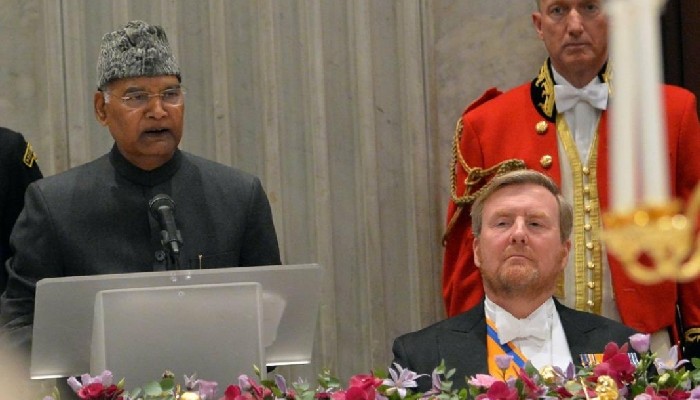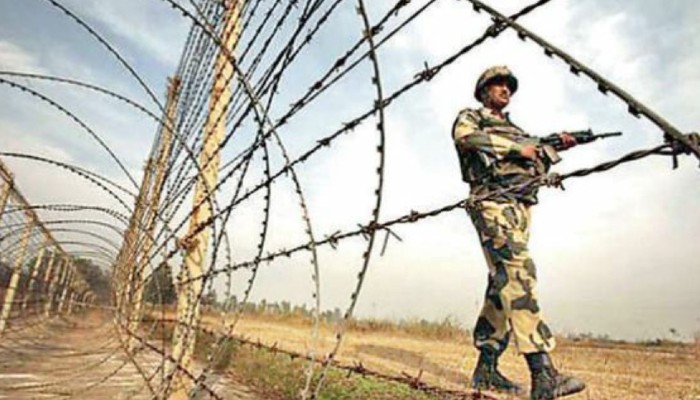The altering of Kashmir’s special status poses risks, but it can also help consolidate our periphery
This has been a year when India’s national security environment saw a radical shift. From India’s decision to use air power in response to Pakistan’s continuing use of terrorism as an instrument of state policy to a formal announcement of a chief of defence staff, 2019 has been a year of many firsts. All these decisions will have a significant bearing on the long-term national security of the country. However, it is the decision by the Narendra Modi government in August to abrogate Article 370 of the Constitution, which had given special status to the erstwhile state of Jammu and Kashmir, that perhaps will be most consequential in the short-to-medium term. This bold move continues to attract global attention.
Most recently, it was Sweden that emphasized “the importance of respect for human rights", and called for the lifting of remaining restrictions in Kashmir, though it continued to underscore the need for a bilateral “political solution" between India and Pakistan. Last month, German chancellor Angela Merkel, during her visit to Delhi, had also termed the restrictions in the region as “not sustainable". A bipartisan resolution was introduced earlier this month in the US House of Representatives seeking an early release of political detainees in Kashmir and calling for an end to the communications clampdown in the region. For a decision as far-reaching as the one India made with regard to Jammu and Kashmir, it would be natural for the international community to respond with some degree of urgency to the altered status quo. However, what is remarkable is how mild the international response has been.
This has a lot to do with the changing global realities, but it is also a result of the effective diplomatic and political management of the issue by New Delhi. In some ways, the issue of Kashmir was no longer as potent on the global stage in 2019 as it was in the 1980s and 1990s.
The world had moved on, with more serious issues taking centre stage, globally. If in the 1980s Pakistan was a key interlocutor for the West, especially the US in its Cold War strategic framework, in the 2000s it was India, which, as an emerging economic power, was shaping global attitudes. If in the 1980s, Pakistan’s use of extremism was seen as acceptable in the context of the Afghan conflict, the attacks of 11 September 2001 changed the global narrative on Islamist extremism when its rising tide touched the shores of the West. The changing complexion of insurgency in the Kashmir valley, drawing inspiration from global extremist movements, alienated many in the Indian hinterland who had initially been supportive of genuine democratic demands made by the local populace.
So, in more ways than one, time was ripe for India to make its move in Kashmir. However, this required proactive diplomacy by New Delhi. The last few years saw India use every single platform to target Pakistan for its use of terrorism as an instrument of state policy and build a global environment sustainable for its own policy choices.
Many in India had questioned this focus on Pakistan, arguing that it lowered India’s status to that of a South Asian actor, something that India had worked hard to overcome. However, it was critical in framing a narrative about the challenges for India in Kashmir and about Pakistan’s central role in spreading terror in the region. That India was successful in mobilizing world opinion against Pakistan is evident in not only the tough times Pakistan has been facing at the Financial Action Task Force, but also in the muted response to India’s moves in Kashmir. The international community saw merit in India’s policy response partly because India has made its case repeatedly and effectively over the past few years.
It was not only diplomatically, though, that India upped the ante. Militarily too, the strategy of “offensive defence" ensured that New Delhi demonstrated its ability and willingness to let matters escalate. From the so-called surgical strikes to the air strikes in Balakot, India’s response has been one of graduated escalation. This has sent a message to the international community that India’s restraint has been pushed to its limits and that India would not hesitate in responding to Pakistani provocations. If at all de-escalation were to take place, it was for Pakistan to decide how and when. From carrying all the baggage of a responsible actor, New Delhi has now passed on some of the costs of the misadventure to Pakistan. This message was not lost on global interlocutors. The Kashmir situation would never be the same again.
Against this backdrop, the Modi government decided to alter the administrative status quo in Jammu and Kashmir, which was clearly unsustainable. What the previous governments were trying to do by stealth, this government, spurred by the strong electoral mandate it won in 2019, decided to do publicly.
This approach carries risks, both political and strategic, but if done sagaciously, it also has the potential to finally consolidate India’s periphery. So far, the move vis-à-vis Kashmir has elicited strong support at home and muted criticism abroad. However, this could change if the situation deteriorates.
After seven long decades, New Delhi finally picked this year to roll the dice on Kashmir. Whichever way it eventually rolls, the implications for India and South Asia will be profound.
(Courtesy: The Mint)
 Contact Us
Contact Us  Subscribe Us
Subscribe Us









 Contact Us
Contact Us
 Subscribe
Subscribe
 News Letter
News Letter

